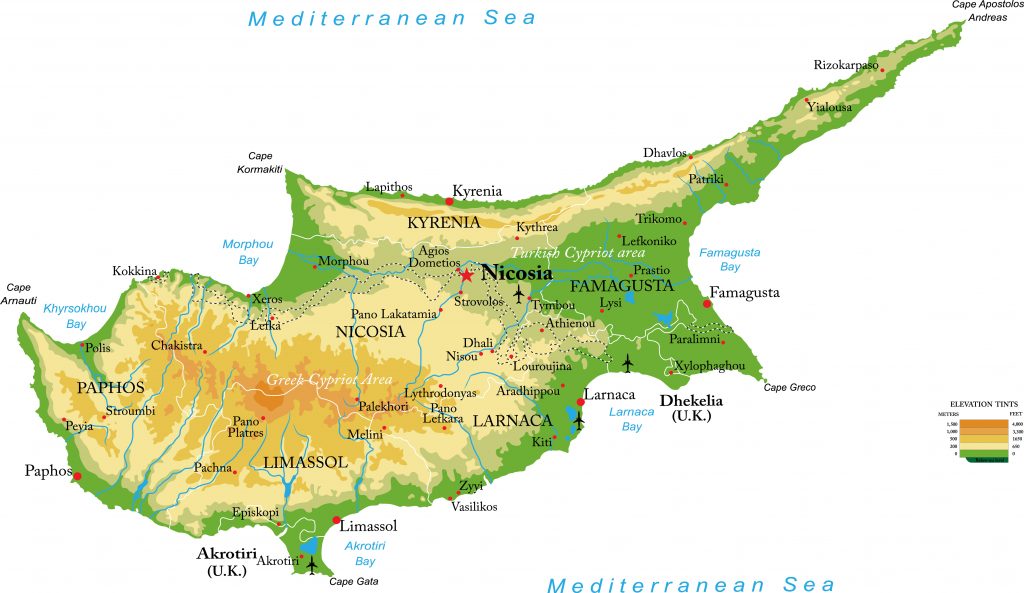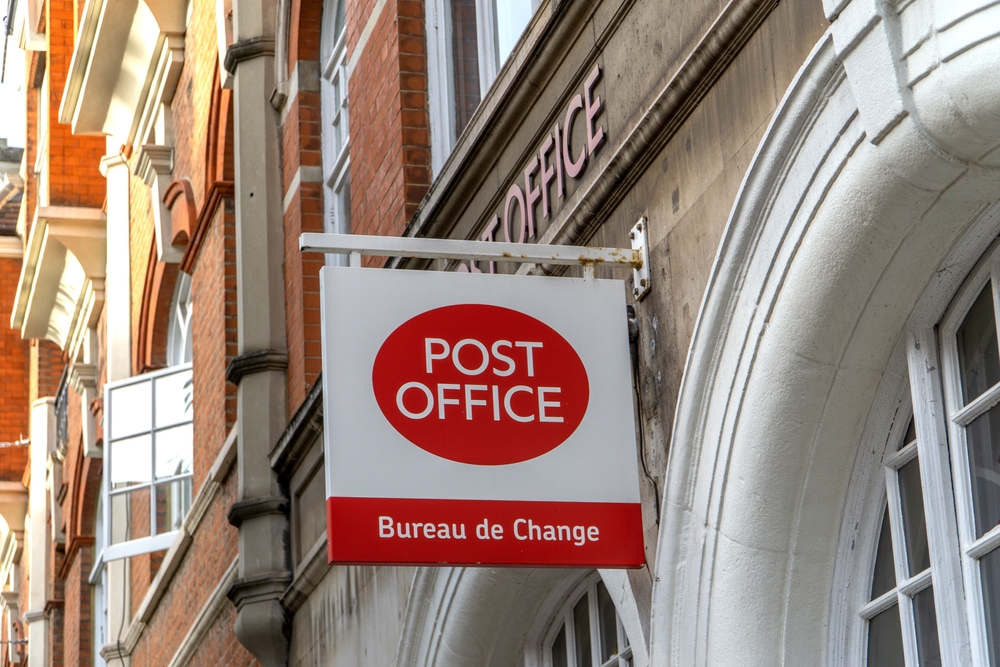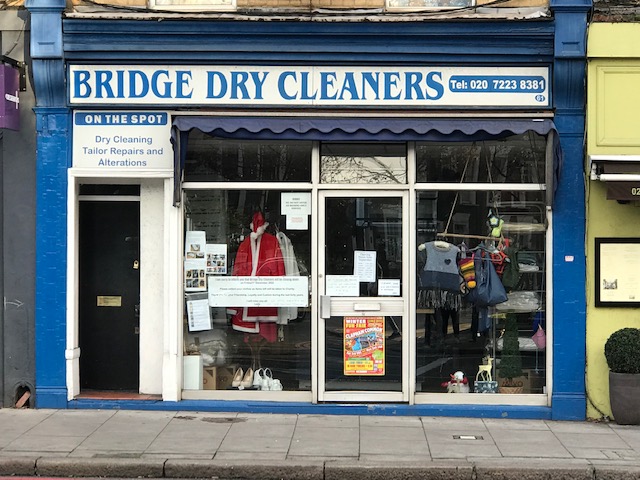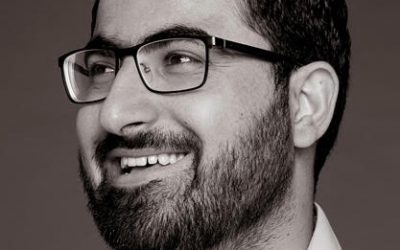Interview by Teresa Norman
A story of an entrepreneurial Greek Cypriot family serving the community in Battersea, London for over 50 years.
The closure of Bridge Dry Cleaners in London will the end of an era for Leda whose family have had a presence in a corner of Battersea Bridge, London since 1966 when Leda was 14. The same age as her grandmother was when she was forced to leave her home in Istanbul, under tragic circumstances, witnessing her father being killed. The reason? All Greeks were forced to leave the city. He was killed for attempting to take with him their valuables and not just food, breaking the government’s edict on what the Greek refugees were allowed to take with them.
Cyprus
Her great grandfather’s last words to his family were ‘get on the boat’. They did and the boat took them to Cyprus. Leda’s grandmother eventually got married and raised her family on the island. Her son was Leda’s father. After her husband died, Leda’s grandmother became housekeeper to an English Captain, Captain Timmy who had lion skins on the floor of his house and is remembered by the family as being very kind. Cyprus was at that time, a British colony. History of Cyprus – Wikipedia

Phopho, Leda’s mother
We now move the story to Phopho, Leda’s dynamic, entrepreneurial mother. Phopho came to the UK as a teenager. During the war, she was evacuated to Southend on the Essex coast, but she decided to go back to Cyprus where she worked, this meant that when she came back to London, in the early 1950s, she had some capital. She used her savings and she borrowed money from the bank to set up a business in Battersea. Her brother and employee had to guarantee her loan as in those days, a woman could not take out a loan without a man’s approval. She opened a café.
In the late 1960s and 1970s, launderettes became fashionable and a useful service to the community so the business- minded Phopho divided her café in Parkgate Road, Battersea into a launderette and a café. She later took over another shop in the same road and made it a Post Office so she became a sub-postmistress. The post office in the 1970s and 80s was a central point of the community; people went there to collect their pension, uemployment benefit. To complement the service, Phopho sold Basildon Bond Stationary. This is contrast to today where now you will find post offices selling many different products and some are newsagents as well. To find out more about the changing role of the post office, go to: The History Press | A short history of the Post Office

When the property round the corner came up for sale, she bought it and turned it into a dry cleaners’, another useful shop for the neighbourhood.
Leda’s story
We now come to Leda herself. She started out working in Harrods. At 16, she was in the internal audit office, using the skills she had learnt at Pitmans; typing, shorthand and double entry book-keeping. After 3 years, looking for adventure, she went to stay with her uncle in Athens. He ran a publishing house and a nursing agency where she helped him liaise with the authors. On returning to the UK, she married and ran businesses with her husband, Ted. They had 4 sons (3 were triplets). Sadly, her husband died when she was only 42 and the triplets were 13. One of the sons attended the local Battersea school, Homepage | Bolingbroke Academy (arkbolingbrokeacademy.org) They are now grown up. Like all families who blend different cultures, they had to make a choice as to whether they maintained their Greek culture alongside their English culture or to identify as English. They chose the second path but with some regrets that her sons do not speak Greek.

At age 50, Leda took over the shop, the dry cleaners in Battersea Bridge Road that Phopho had established. Over the years, on her team, she has employed people from many nationalities but the longest serving employees were Sonia, a Turkish Cypriot and Agatha, from Poland. London is always multi-cultural and people can find that the tensions that exist between different peoples do not need to be maintained in a new country.
To conduct this interview, I sit in her shop waiting for the times between customers when she can speak to me and I gain some insight into the skill it takes. There is customer after customer and they all want to share a little bit of their lives – why they can’t pick up their clothes until Monday or the reason they are bringing their suit in is they attended a funeral the day before. Leda has a response for everyone as she organises their clothes and you can see why she has made her business a success. The personal contact she makes with each customer makes visiting her shop a lovely experience. She tells me people often ask her advice.
So, after all these trials, tribulations and joys, what are Leda’s life lessons?
- Keep problems in different corners so they don’t overwhelm you
- You have to be fair, trust the people you work with
- Fairness and loyalty are the most important thing
Why did I want to share Leda’s story? Because it is a story of hope and courage, of overcoming potential intergenerational trauma and making a difference. It shows the importance of a small business to the community. It is also a familiar story of migrants to the UK who may start off with very little but have the drive to make things happen. And, it’s a feminist story, a mother and daughter forging a path together.
Now, in her 80th year, Leda looks back with fondness at all the years she has worked in Battersea.






